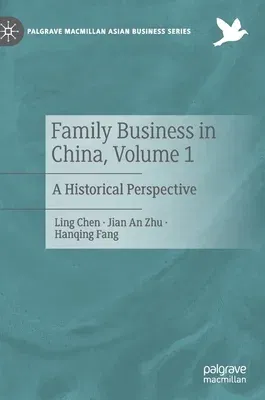Ling Chen
(Author)Family Business in China, Volume 1: A Historical Perspective (2021)Hardcover - 2021, 30 November 2020

Qty
1
Turbo
Ships in 2 - 3 days
In Stock
Free Delivery
Cash on Delivery
15 Days
Free Returns
Secure Checkout

Part of Series
Palgrave MacMillan Asian Business
Print Length
182 pages
Language
English
Publisher
Palgrave MacMillan
Date Published
30 Nov 2020
ISBN-10
3030513947
ISBN-13
9783030513948
Description
Product Details
Authors:
Book Edition:
2021
Book Format:
Hardcover
Country of Origin:
NL
Date Published:
30 November 2020
Dimensions:
21.01 x
14.81 x
1.27 cm
ISBN-10:
3030513947
ISBN-13:
9783030513948
Language:
English
Location:
Cham
Pages:
182
Publisher:
Weight:
390.09 gm